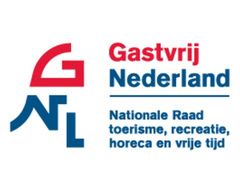
-
 publication: 20 June 2016
publication: 20 June 2016
CELTH Project Presentation: Human Capital – Life Long Learning for the Hospitality Industry
by Dr. Sjoerd Gehrels, Academy of International Hospitality Research
On 27th May, the CELTH report on Human Capital – Life Long  Learning was presented in Utrecht to the hospitality industry. The research project was requested by Gastvrij Nederland (Hospitable Netherlands), the National Council for Tourism, Recreation, Hospitality and Leisure. A strong need was identified to develop a development plan for the hospitality sector providing insight into the organization of training courses and educational programmes in the Dutch hospitality sector. For this research a total of 18 semi-structured interviews were conducted with participants coming from a diversity of hospitality industry segments and representatives of hospitality industry associations. The participating companies employ between 10 and 2,500 FTEs. In alphabetical order the companies/ organisations were: Hotel Casa 400, Restaurant Zalencentrum De Pleats Burgum, Fletcher Hotels, Hospitality Guild, Hampshire Hotels, Hilton Hotels, HISWA, Restaurant Kaatje bij de Sluis, Royal Horeca Netherlands (KHN), Molecaten Leisure Parks, NH Hotels , Okura Hotel Amsterdam, Radisson Blu Hote
Learning was presented in Utrecht to the hospitality industry. The research project was requested by Gastvrij Nederland (Hospitable Netherlands), the National Council for Tourism, Recreation, Hospitality and Leisure. A strong need was identified to develop a development plan for the hospitality sector providing insight into the organization of training courses and educational programmes in the Dutch hospitality sector. For this research a total of 18 semi-structured interviews were conducted with participants coming from a diversity of hospitality industry segments and representatives of hospitality industry associations. The participating companies employ between 10 and 2,500 FTEs. In alphabetical order the companies/ organisations were: Hotel Casa 400, Restaurant Zalencentrum De Pleats Burgum, Fletcher Hotels, Hospitality Guild, Hampshire Hotels, Hilton Hotels, HISWA, Restaurant Kaatje bij de Sluis, Royal Horeca Netherlands (KHN), Molecaten Leisure Parks, NH Hotels , Okura Hotel Amsterdam, Radisson Blu Hote ls, Reiswerk ANVR, Leisure Park The Leistert, Kennemerduinen, Sundio Group, Restaurant Wolfslaar. The results show that the industry is aware of the importance to develop their people, because that is crucial for growing business success and developing companies. Companies are also putting effort in to realize staff development. Almost all companies have a training policy. It is interesting to see that both the smallest as well as the largest company in the research had no training policy in place. So it seems that a company's size does not affect whether to have a training policy or not. Also, almost all companies follow up on the national legal staff development requirement. As far as they have insight into the budget they spend on staff development, it varies considerably also in how it is organized. Companies are generally aware of the demand for training by their employees, and give priority to function-specific training. Broad, individual staff development-oriented training or education is still only a focus in few companies that recognize this as a way to retain good employees. Most companies are neutral about the value of an official diploma from an educational institution and look more at applicants’ personality than at diplomas. Companies who are competing in a highly competitive labour market, such as in or around Amsterdam, value an official government-recognized diploma from an educational institution more having the employees’ interest in mind. A limited number of company representatives think that employees value a recognized degree from a higher education institution. Most common education levels in the hospitality sector are Secondary Vocational Education level 3 and 4 (MBO 3/4), particularly in the operational functions. In unit management and in corporate offices of hotel chains increasingly staff is employed who are at Bachelor level. For some specialized functions within the large companies, people are hired at Master level. The interviewees expect only marginal change in education levels within the next three years. Some interviewees expect that an increasing number of Bachelors and MBO-4 graduates will leave the sector because of the attraction to go to other sectors with better employee value propositions. The companies and organizations participating in the study agree that companies provide a major part of the training for their employees. This is connected to the need for training that fits the daily operations practice. Companies, however, support the notion that basic competences and transferrable skills should be provided by the traditional education sector. Employability and the motivation among employees to be employable, is generally considered satisfactory to good. Mobility of employees increases when the level of education is higher. A few companies with an innovative HR function identify actively not only the training needs of their staff but also their general education wishes. It is recognized that looking at employability is good for companies in order to facilitate an effective HR strategy. For staff training a wide range of methods and providers are in use but most preferred is in-house training that is connected directly to the work situation. The most important competencies mentioned which should not be absent in education/training are: promoting a hospitable attitude among staff, language skills in the workplace, long-term maintaining of an hospitable organization, problem recognizing and solving skills, formulating ones opinion, reflecting critically on processes in order to quickly adapt to a changing situation, understanding of sustainable operations and the impact this has on stakeholders. As a challenge the necessity to work more future and change oriented was identified, which means that people need to be educated much broader. On the side of entrepreneurs there needs to be a change in culture because their role in developing staff is crucial. Teachers in vocational education were perceived by the industry representatives to often have outdated knowledge. Consequently, there is a responsibility for the industry to contribute and supplement the vocational training (practical knowledge) offered by the vocational schools. Particularly in higher education Universities, of Applied Science are expected to supply students (future professionals) with basic skills, “soft” people- and communication skills, understanding of ethics and other transferable skills. The next phase in the CELTH Human Capital – Life Long Learning project is to liaise with Gastvrij
ls, Reiswerk ANVR, Leisure Park The Leistert, Kennemerduinen, Sundio Group, Restaurant Wolfslaar. The results show that the industry is aware of the importance to develop their people, because that is crucial for growing business success and developing companies. Companies are also putting effort in to realize staff development. Almost all companies have a training policy. It is interesting to see that both the smallest as well as the largest company in the research had no training policy in place. So it seems that a company's size does not affect whether to have a training policy or not. Also, almost all companies follow up on the national legal staff development requirement. As far as they have insight into the budget they spend on staff development, it varies considerably also in how it is organized. Companies are generally aware of the demand for training by their employees, and give priority to function-specific training. Broad, individual staff development-oriented training or education is still only a focus in few companies that recognize this as a way to retain good employees. Most companies are neutral about the value of an official diploma from an educational institution and look more at applicants’ personality than at diplomas. Companies who are competing in a highly competitive labour market, such as in or around Amsterdam, value an official government-recognized diploma from an educational institution more having the employees’ interest in mind. A limited number of company representatives think that employees value a recognized degree from a higher education institution. Most common education levels in the hospitality sector are Secondary Vocational Education level 3 and 4 (MBO 3/4), particularly in the operational functions. In unit management and in corporate offices of hotel chains increasingly staff is employed who are at Bachelor level. For some specialized functions within the large companies, people are hired at Master level. The interviewees expect only marginal change in education levels within the next three years. Some interviewees expect that an increasing number of Bachelors and MBO-4 graduates will leave the sector because of the attraction to go to other sectors with better employee value propositions. The companies and organizations participating in the study agree that companies provide a major part of the training for their employees. This is connected to the need for training that fits the daily operations practice. Companies, however, support the notion that basic competences and transferrable skills should be provided by the traditional education sector. Employability and the motivation among employees to be employable, is generally considered satisfactory to good. Mobility of employees increases when the level of education is higher. A few companies with an innovative HR function identify actively not only the training needs of their staff but also their general education wishes. It is recognized that looking at employability is good for companies in order to facilitate an effective HR strategy. For staff training a wide range of methods and providers are in use but most preferred is in-house training that is connected directly to the work situation. The most important competencies mentioned which should not be absent in education/training are: promoting a hospitable attitude among staff, language skills in the workplace, long-term maintaining of an hospitable organization, problem recognizing and solving skills, formulating ones opinion, reflecting critically on processes in order to quickly adapt to a changing situation, understanding of sustainable operations and the impact this has on stakeholders. As a challenge the necessity to work more future and change oriented was identified, which means that people need to be educated much broader. On the side of entrepreneurs there needs to be a change in culture because their role in developing staff is crucial. Teachers in vocational education were perceived by the industry representatives to often have outdated knowledge. Consequently, there is a responsibility for the industry to contribute and supplement the vocational training (practical knowledge) offered by the vocational schools. Particularly in higher education Universities, of Applied Science are expected to supply students (future professionals) with basic skills, “soft” people- and communication skills, understanding of ethics and other transferable skills. The next phase in the CELTH Human Capital – Life Long Learning project is to liaise with Gastvrij  Nederland again to assist in preparing the development plan needed for the hospitality industry. Stenden HMS, Academy of International Hospitality Research together with partners Hogeschool Zeeland and NHTV, Breda will continue t
Nederland again to assist in preparing the development plan needed for the hospitality industry. Stenden HMS, Academy of International Hospitality Research together with partners Hogeschool Zeeland and NHTV, Breda will continue t




 Back to overview
Back to overview

